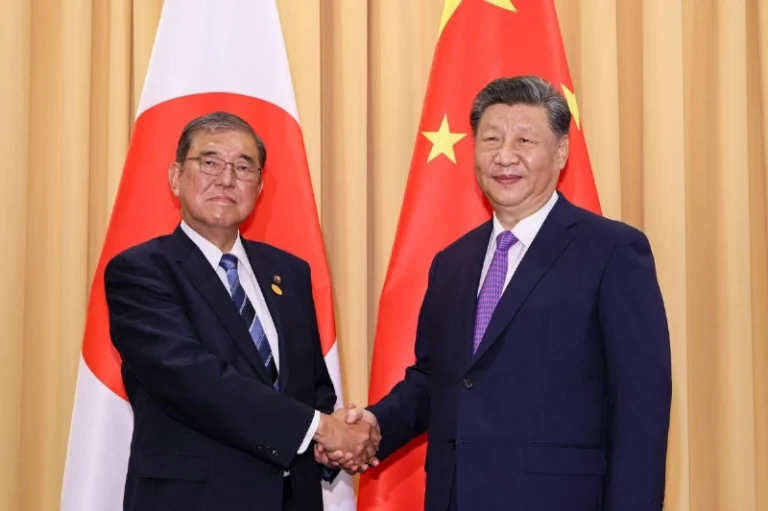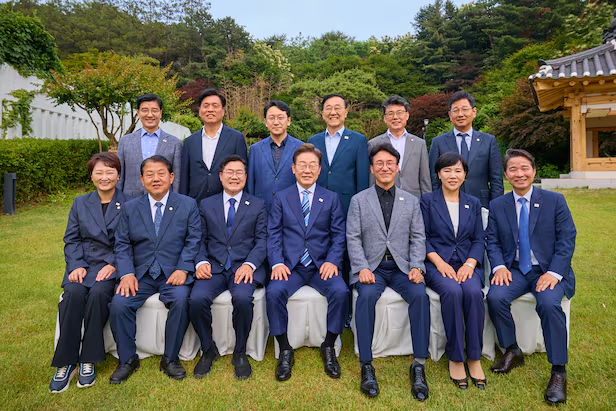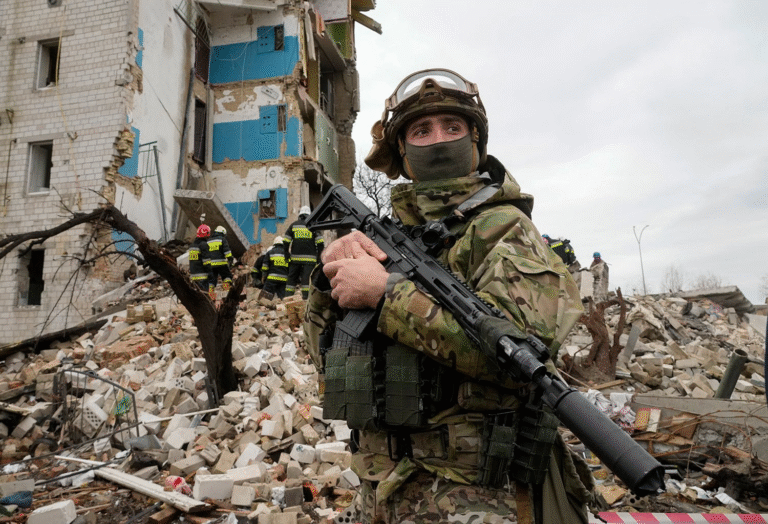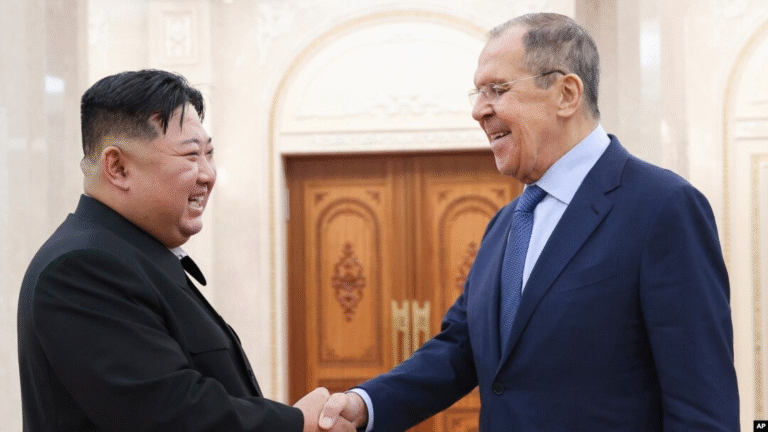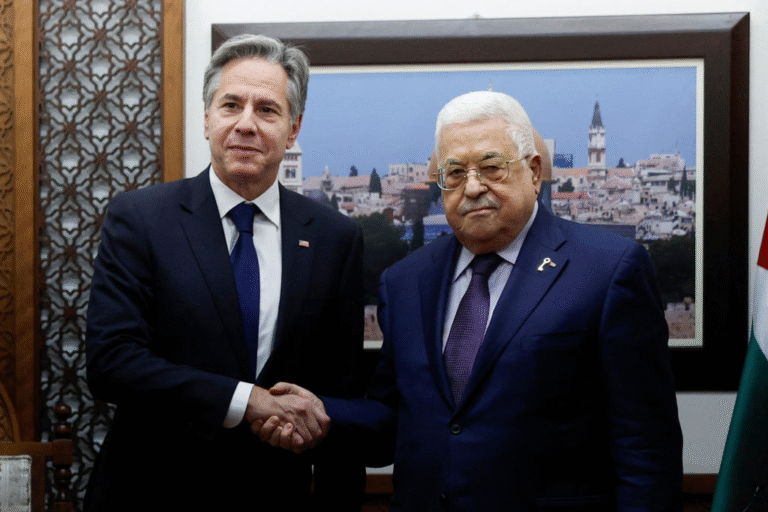
Andriy Zholob of the Ukrainian punk band Beton who also acts as a
military sturgeon in aiding the war effort. Photo Credit: ABC News
Nick Torro
The America-Eurasia Center
America-Eurasia Art Foundation
Cultural Diplomacy
www.eurasiaartfoundation.org
While reading articles about international events and the various conflicts around the world
can be enlightening and is an important part for anyone that wishes to be a global citizen, it is often
rather disheartening and depressing. People are constantly bombarded with depressing headlines
about the latest natural disaster, increasing tensions that bring nations closer to war, and the latest
death toll in conflicts that seemingly have no foreseeable end in sight. However, there are many
things that bring people together and bring them joy. One of these things is music and it has the
power to reach people from all walks of life and make them briefly forget about the troubles of the
world. And the new program crafted by the Secretary of State Anthony Blinken hopes to bring
forth a world in which different cultures can be united through music.

From left to right: Yoshimasa Hayashi, the former foreign minister of Japan, Secretary Blinken, and the U.S.
Ambassador to Japan, Rahm Emanuel. Photo Credit: AP News
A recent viral video of Secretary Anthony J. Blinken performing “Hoochie Coochie Man”
by Muddy Waters has revealed his passion for music, with the video garnering over 8 million hits
on X. The reaction from social media users was generally positive and enthusiastic, with many
being surprised and rather taken aback by the ability of a respectable government official to rock
out. However, this should not come as a surprise since music “is Mr. Blinken’s greatest
nonpolitical passion.”1 Blinken first fell in love with music upon hearing the Beatles song “It’s A
Hard Day’s Night” and has been a devoted music lover ever since, with favorite artist being Eric
Clapton, witnessing him play in concert about 75 times. Blues music seems to be Blinken’s favorite
genre, having once made his way to the front of the crowd at B.B. King concert and sang along to
songs he had memorized the lyrics of. For this, at only 16, Blinken was given King’s guitar pick.
Blinken was also a part of a band known as Cash Bar Wedding, which consisted of a former
speechwriter for Vice President Gore and a spokesman for Joe Biden when he was vice president.
The band has hung out with members of prominent rock bands such as Husker Du and Big Star.
After playing in a variety of bands, Blinken would soon start his brief solo career. Between 2018
and 2020, during the Trump presidency and a time in which Blinken was unsure whether he would
continue to have a career in government, Blinken uploaded three blues-rock style singles on
Spotify that have been collectively streamed 15,000 times.
Now, famous as a Secretary of State, Blinken’s discography has now been played at foreign
events prior to his arrival, such as on a radio station in Finland in honor of his arrival to give a
speech in support of Ukraine. With his love of music no longer being a secret, many foreign
diplomats and leaders have given Blinken musical gifts during diplomatic meetings. One notable
example comes from Eli Cohen, the foreign minister of Israel, who gave “a blue acoustic guitar
with an engraving of U.S. and Israeli flags.”2 Blinken has also been open about how music brought
him and Yoshimasa Hayashi, the former foreign minister of Japan, closer together and gave them
a special relationship as both would shamelessly geek out about the Beatles. In fact, following a
meeting in Japan between members of the Group of 7, Blinken and Hayashi held their own little
jam session by playing their guitars while the other ministers sang along with the aid of a karaoke
machine. As such, it is not surprising that Blinken conceived of a program that continues an
American tradition dating back to the Cold War, where, due to competing with the Soviet Union
for dominance on the world stage, the State Department sponsored the foreign tours of artists such
as Louis Armstrong and Ella Fitzgerald.3 However, Blinken’s program has some modern updates
as well as some new programs.
Secretary Anthony Blinken’s program, known as the Global Music Diplomacy Initiative,
kicked off with an event that featured several prominent musicians such as Dave Grohl, Herbie
Hancock, Rakim, and Denyce Graves. The event had support from the Bureau of Education and
Cultural Affairs, as well as endorsements from YouTube, Chevron, Boeing, the Wasserman
Foundation, and United Airlines. During his speech at the event, Blinken describes how music can
be used as a way for people to reveal personal information about themselves and to learn more
about each other; believing that “music as its core is about a bond rooted in our shared humanity.”4
In other words, music can act as a bridge between different cultures, different nationalities,
different ethnicities, and different languages. Because of this, Blinken’s program includes bringing
foreign musicians to the United States. In addition, the Global Music Diplomacy Initiative plans
to boost the economies, increase access to education, and create stronger societies. This is to be
achieved in three parts. The first part is a partnership between the Recording Academy and the
State Department in mentoring music professionals by pairing them with an expert from the United
States. In tandem with this is the Peace Through Music Award, which celebrates “Americans who
are using music to support cultural exchange and grow mutual understanding between people
across the planet.”5 The second part of the program involves the State Department adding
American music and lyrics into the curriculum of English classes. The final part of the program is
the creation of a new Fulbright Award for artists of the Kennedy Center for the Performing Arts,
which will host teams of American and foreign scientists and artists dedicated to figuring out how
to use their artistic and scientific talents to better benefit the world.6
Regarding the Peace Through Music Award, no musician in America is arguably more
deserving of it than Taylor Swift. Over half of the adult population of the United States has been
swept up in Taylor Swift fever. During the week of August 12, 2023, Swift finished the U.S.
portion of her tour that spread across five continents in nearly 150 shows. In nearly a week, while
playing at the SoFi Stadium in Los Angeles, Taylor Swift made $160 million, with some estimating
that the tour made $1.4 billion in a frighteningly short amount of time. In fact, Swift wields so
much power and influence that her concerts literally increased the economy, with her concerts at
SoFi Stadium increased the GDP of Los Angeles County by $320 million. At concerts such as
these, fans experience what some psychologists would describe as an out of body experience. So
devoted to Swift are her fans that they can shake the very foundations of the earth, with a concert
in Seattle registering as 2.3 on the Richter scale. In addition to being noted for its intense, almost
cult-like devotion, Swift’s fanbase is notable for its diversity. Some are prominent celebrities such
as Channing Tatum and Mark Zuckerberg, but roughly half of her fanbase comes from a home that
makes less than $50,000. There are a variety of explanations for Taylor Swift’s immense fame.
One of the reasons is Swift herself as in addition to being a remarkable songwriter, she is also a
remarkably kind person. One example of this was Swift’s willingness to pay $55 million to ensure
that her tour staff all received $100,000 bonuses. But another reason for Swift’s fame is the sense
of community fostered between Swift and her fans and between the fans themselves. In addition
to clapping along to songs and having their own inside jokes, Swifties also trade homemade
bracelets with one another. Furthermore, Swift’s diverse and eclectic range of songs also ensure
that there is something for everyone, which combined with her authenticity, can serve as an
explanation as to why so many different people feel such intense emotions at her concerts. “This
is the essence of Swift’s stardom: she flawlessly straddles the line between the accessible and the divine.”7 It is not just Americans that are caught up in Swift fever, world leaders are feeling it as
well, as “Justin Trudeau took to Twitter to plead for Canadian dates.”8 Taylor Swift has been
making a positive impact wherever she goes, both financially and culturally. With this kind of
power, she could do wonders for the international community with the sense of unity she generates
amongst her fans. Perhaps the State Department would do well to sponsor her. Regardless, Swift
is very much the embodiment of supporting mutual understanding between different cultures and
peoples, and for that she should be awarded the Peace Through Music Award.
There are many Ukrainian artists that would benefit from the Global Diplomacy Initiative,
particularly in regards to getting paired up with a musical expert from the United States. After a
year of war, despite the semblance of normalcy being brought back to the city of Kyiv, many
people still live in fear and feel anxiety of what might come next. Music is used not just as a coping
mechanism, but as a means of defying the sense of fear that Putin wishes to instill in the Ukrainian
population. “They are using music to steel their souls, assert their identity and inspire opposition
to the invasion.”9 One example of this can be seen at Lysenko Column Hall, the home of the
National Philharmonic of Ukraine, which has been transformed into a barracks since the war
began. After Kyiv was secured from Russian attacks, concerts eventually began to return, although
only 160 people are currently allowed to attend as that is the maximum capacity of the bomb
shelter. Even more impressive the consistency in which the orchestra is able to perform. The
reasoning for this is the desire amongst its members to briefly forget about the trauma of war and
to heal the wounds that it has left.10 The National Philharmonic of Ukraine is not the only place where classical musicians defy fear. In Kharkiv, the cellist Denys Karachevstev has posted videos
on YouTube of performing in the damaged city in order to raise money and awareness for the
war.11 Another prominent example of musical resistance can be found at the Gasoline Radio, run
by Oleksii Makarenko, whose goal is to use a wide range of musical genres to craft a modern
image of Ukrainian heritage and culture. This is especially critical for the eastern portion of
Ukraine as places like Donbas and Kharkiv, have always been under the dominant influence of
Russian culture. The radio station is even willing to go to specific regions “to gather information
from locals about traditional folk music that can then be used to assert Ukrainian cultural
independence.”12 The members of Gasoline Radio are not the only ones working to remind both
Ukrainians and Russians of the importance of Ukraine’s unique culture. From the safety of her
apartment’s basement, Vira Lytovchenko plays her violin for both herself and the other people
sheltering with her and uploads these videos to the Internet to show that the Ukrainians are a people
with their own identity and culture. The Ukrainian folk band DakhaBrakha defies the Russian
propaganda tactic of claiming Ukrainian culture as its own by bringing together “several musical
practices from different regions and ethnic groups within Ukraine, highlighting the vibrant and
diverse culture of Ukraine.”13 Some bands use the old-school aggression and rebellious attitude of
punk rock to show their support for Ukraine. One example of this is Andriy Zholob, a military
surgeon and the member of the punk band Beton. Zholob has described how his music has had a
direct impact on soldiers, as many have written him letters telling him that they listen to his songs
on their march to the front.14 Beton is not the only punk band that is having a significant impact
on Ukrainian soldiers. Eugene Hutz, the Ukrainian frontman of the punk band Gogol Bordello has
been going on tours in the wake of the invasion to raise funds and support for Ukraine. In fact,
Bordello played for soldiers at a military base in Ukraine, with the military band asking if it could
play Bordello’s songs to keep up the spirits of soldiers.15 Other bands make use of more modern
musical methods as seen in the works of DJ Taras Clasps. During the early days of the war, Clasps,
along with roughly 100 other people, took refuge in K41, a famous Kyiv nightclub; its thick walls
made it a perfect place to be protected from missiles. To cope with the anger and sleep-deprivation,
Clasps began to produce music on his computer. “The result was the Prodigy-like Peace dove, a
satirical assault on the musicians calling for appeasement rather than victory.”16 His songs have
now become the soundtrack to parties at electronic clubs where funds are raised to buy cars for
army brigades.17
Ukrainian artists are not the only ones that should be acknowledged for their musical
contributions to the Ukraine war. Many Russian artists have spoken out against the war, often at great risk to their own careers and personal safety. However, these artists are rare as in contrast to
people in Ukraine, the musical opposition to the war in Russia has been sparse. According to
music critic Artemy Troitsky, the reason for this is because Ukrainians can find inspiration more
easily due to not being the aggressors. Russians find the notion of being responsible for the
destruction and suffering of others to be rather depressing. Russian songs that do speak out against
the war in Ukraine do so indirectly, speaking in abstract terms of desiring peace. “Artists don’t
show listeners a way out of a situation they lament, but experience it with them, leaving listeners
to draw their own conclusions.”18 However, despite this, Russian musicians are still harassed by
the authorities. This is because, while their music has not explicitly and unequivocally condemned
the war in Ukraine, the artists themselves have. As a result, the artists were blacklisted and banned
from playing. Thus, they were soon left with two choices: Stay quiet or leave the country. “The
result is that a whole layer of national musical culture-artists, promoters, journalists and, most
importantly, the audience-have fled the country.”19
Most of the Russian artists that have spoken against the war do not attempt to provide a
solution to the war in their songs, but rather attempt to explain the cause of the war and how
Russian society should react. One example of this can be found in the rock band Aquarium, whose
frontman, Boris Grebenshchikov is inspired by the music of the Woodstock generation. In fact,
Grebenshchikov has been committed to pacifism since the Russian invasion of Afghanistan in the
1980s. In the months after the Russian invasion of Ukraine, Grebenshchikov had canceled concerts
in Russia in favor of a performance at the Brandenburg Gate in Berlin, Germany in honor of
Ukraine. Russia retaliated by canceling his radio show, Aerostat. In September of 2022, on their
new album House of Saint, Aquarium released the song “Divination”, which was written after the
outbreak of war and is a folk-rock song which decries the war as being evil, the loss of a future,
and the justifications used for the war. Yet another popular band that made a name for itself by
asserting its pacifist stance during the time of the Soviet-Afghan war is DDT, one of the most
popular bands in Russia. The band’s frontman, Yuri Shevchuck, does not consider himself to
belong to any political faction, instead placing values on humanism and universalism. Despite this,
Shevchuck is revered by both liberals and conservatives, making him capable of eliciting “the kind
of national unity the Kremlin propagandists love to talk about so much.”20 He has been opposed
to all wars, and the war in Ukraine is no exception. So devoted to his homeland is Shevchuck, that
he still refuses to leave Russia despite the dangers that come with openly speaking out against
Putin. While still producing new music, the band is banned from performing. Recently, they have
released the album Wolves in the Shooting Range, which contains the song “Funeral of War,”
which is rather unusual given how it uses directly positive lyrics that use symbolism to depict
Shevchuck’s decision to lay the war to rest. In addition to rock bands, there are also Russian
rappers that have spoken out against the war. One group is Kasta, which released an album towards the end of 2022 that provides insight into the emotional state of Russians following the outbreak
of the war. For this, the album was banned in Russia. The song “Timelessness” proceeds to ask
questions such as the debate over what Russia and its people are in the wake of the war.21 All of
these Russian groups, especially those that have been forced to flee the country for their own
safety, would greatly benefit from an American mentorship program as they might be able to find
a large audience in America, thereby ensuring the survival of their careers as well as further
spreading their message against Russian aggression.
“Throughout history, music has been essential during times of struggle, transcending
entertainment in order to become a force of change and progress.”22 Secretary Anthony Blinken’s
Global Diplomacy Initiative has the potential to do great things by acknowledging American artists
that have made great strides towards bringing people closer together through the sense of
community one feels while listening to them, and by giving mentorship and support to musicians
from Ukraine and Russia that are making their voices heard in their refusal to bend to the will of
Russian tyranny and aggression. Music can give hope to people around the world that are
desperately in need of it and makes it possible to dream of a better future for us all.
Works Cited
1. Michael Crowley, “When Mr. Secretary Loves to Rock,” The New York Times, October 2, 2023,
https://www.nytimes.com/2023/10/02/us/politics/antony-blinken-guitar-state-department.html.
2. Crowley, “When Mr. Secretary Loves to Rock,”
3. Crowley, “When Mr. Secretary Loves to Rock,”
4. Anthony J Blinken, “Secretary Antony J. Blinken at the Launch of the Global Music Diplomacy Initiative –
United States Department of State,” U.S. Department of State, September 28, 2023,
https://www.state.gov/secretary-antony-j-blinken-at-the-launch-of-the-global-music-diplomacy-initiative/.
5. Blinken, “Secretary Antony J. Blinken at the Launch of the Global Music Diplomacy Initiative – United States
Department of State,”
6. Blinken, “Secretary Antony J. Blinken at the Launch of the Global Music Diplomacy Initiative – United States
Department of State,”
7. Evan Gardner, “Taylor Swift Unites America,” https://www.thefp.com/, August 12, 2023,
https://www.thefp.com/p/taylor-swift-unites-america.
8. Gardner, “Taylor Swift Unites America,”
9. Joe Mulhall, “‘For Now, Music Is a Weapon’: The Ukrainian Musicians Playing on as an Act of Resistance,” The
Guardian, March 8, 2023, https://www.theguardian.com/music/2023/mar/08/for-now-music-is-a-weapon-
the-ukrainian-musicians-playing-on-as-an-act-of-resistance.
10. Mulhall, “‘For Now, Music Is a Weapon’: The Ukrainian Musicians Playing on as an Act of Resistance,”
11. Aurora Sousanis, “From Billie Holiday to Dakhabrakha: The Uniting Power of the Protest Song,” AllMusic, May
10, 2023, https://www.allmusic.com/blog/post/the-power-of-the-protest-song.
12. Mulhall, “‘For Now, Music Is a Weapon’: The Ukrainian Musicians Playing on as an Act of Resistance,”
13. Sousanis, “From Billie Holiday to Dakhabrakha: The Uniting Power of the Protest Song,”
14. Mulhall, “‘For Now, Music Is a Weapon’: The Ukrainian Musicians Playing on as an Act of Resistance,”
15. Sousanis, “From Billie Holiday to Dakhabrakha: The Uniting Power of the Protest Song,”
16. Mulhall, “‘For Now, Music Is a Weapon’: The Ukrainian Musicians Playing on as an Act of Resistance,”
17. Mulhall, “‘For Now, Music Is a Weapon’: The Ukrainian Musicians Playing on as an Act of Resistance,”
